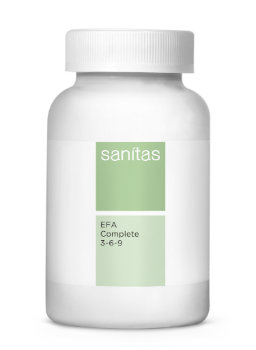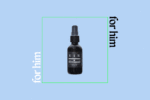Do we still need vitamins if we eat well & work out?
My skin care routine is perfection—and sunblock is my best friend. So, with all that going for me, do I still need vitamins? Can they really contribute to healthier skin? The answer simply is—Yes.
Living a healthier life can feel like a never-ending dance to fight off signs of aging.
In my own life, I’ve transitioned to eating mostly plant-based foods with lean proteins and healthy fats. I exercise in moderation and practice yoga. I am even working towards a bit of meditation.
Needless to say, my skin care routine is perfection—and sunblock is my best friend. So, with all that going for me, do I still need vitamins? Can they really contribute to healthier skin? The answer simply is—Yes.
Here are a few simple ideas to help you know more about them, when to take them, and which ones to choose.
Let’s start with some basics: vitamins are organic substances made by plants or animals. Minerals are inorganic elements derived from the earth and water.
Both make up nutrients and are necessary for life and essential to the normal functioning of our body. A misconception many of us have is that, if we eat healthy we are getting all the nutrients we need.
Realistically, none of us, myself most included, are perfect all the time. A little wine here, a bit too much cheese there, and a few handfuls of our children’s Goldfish crackers can easily cancel out the benefits of our healthy diets. So adding the right kind of vitamins can fill in the gaps and give our body what it needs.
I also like to look for vitamins that come in a time-release option. They are made up of tiny pellets that are slowly released into the body over 6-12 hours.
Vitamins come in different forms.
Tablets are the most common because they have the longest shelf life and are usually the least expensive.
Capsules are used for oil-soluble vitamins such as A, D & E.
Caplets are designed to dissolve in the intestine, not in the stomach, which has a higher acid PH.
And finally, powders and liquids have an extra potency and usually don’t have any extra fillers or binders.
Another choice is between synthetic versus natural vitamins.
To put it simply, natural vitamins come straight from the plant source. For example, natural vitamin C derives from rose hips, which contain healthy bioflavonoids.
This compares to a synthetic vitamin C, which is simply ascorbic acid. I recommend using the plant-based option whenever possible.
I also like to look for vitamins that come in a time-release option. They are made up of tiny pellets that are slowly released into the body over 6-12 hours.
This compares to regular vitamins that are absorbed quickly into your bloodstream, and then are excreted often in just 2-3 hours.
When and how we take our vitamins is crucial to their success.
Because vitamins are organic substances, they should be taken with other foods and minerals for best absorption.
When and how we take our vitamins is crucial to their success.
Because vitamins are organic substances, they should be taken with other foods and minerals for best absorption. In an ideal world, you should spread out your vitamin intake after breakfast, lunch and dinner. If it’s more realistic to take your vitamins once a day, take it after your largest meal.
Now, a few suggestions of what vitamins to take for improving the health of your skin:
• Vitamin C Complex with Rose hips, to fight free radicals that attack collagen & elastin and prevents broken capillaries.
• Vitamin E can reduce the harmful effects of the sun by aiding in repairing cells in the outer layer of the skin.
• Vitamin A helps maintain and repair skin tissue.
• Vitamin B Complex’s star player is biotin. It forms the basis of skin cells and is also responsible for reducing oiliness and the formation of acne.
•Selenium, Copper, Zinc, Magnesium and Potassium are minerals that help maintain collagen & elastin, protect skin from sun damage and even reduce acne. Look for a multi-mineral tablet to easily cover all your bases.
• Alpha-Lipoic Acid helps to protect skin cells from both the inside and outside of the body. It also helps other vitamins work more effectively.
• DMAE is one of the strongest soldiers in the war against free radicals. It also helps prevent the growth of lipofuscin. This is the brown pigment that becomes age spots.
• Essential Fatty Acids, & Omega 3 & 6, are extremely helpful in fighting inflammation, which is directly linked to accelerating the aging process.
• L-Carnitine repairs energy producing cells and is an anti-inflammatory and anti-oxidant.

Before adding any new supplements to your first, I suggest you speak with your doctor. Then, look for companies you already trust.
I really like Sanitas skin care and nutrition. They make an amazing Colloidal Mineral Cocktail that I take in the morning, I use their EFA Complete after lunch and I take a multi-vitamin after dinner. These three steps have become a dependable, consistent part of taking care of my skin—no matter what else life throws at me.
Since our skin is a mirror to what is happening inside our body, it only makes sense to support our skin’s health from the inside out.
Choosing the right supplements and vitamins is one more way to help our skin be its best.
Sending glowing wishes,
Vanessa






